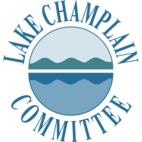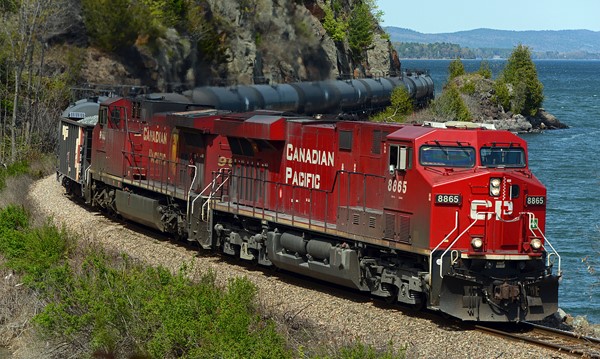Dear ###USER_first_name###,
Please join the Lake Champlain Committee at Plattsburgh City Hall Auditorium on Thursday, August 28 from 7:00 - 9:00 PM for an important community forum on risks of oil transport.
Local emergency services directors, federal spill-response officials, lake ecologists and advocates for healthy schools will join with regional environmental organizations and local residents to discuss the risks of living in a rail corridor that is being used to transport an average of up to 3.4 million gallons of explosive crude oil per day through the Adirondack Park and Champlain Valley.
The Champlain Valley has become a conduit for trains laden with explosive Bakken crude oil. In an average week, five to nine trains of up to 100 tanker cars carry several million gallons of explosive crude oil from North Dakota through Canada and the Champlain Valley to the Port of Albany. Each tank car carries about 34,000 gallons of oil. Much of the oil is being transported in DOT-111 rail cars that are not designed for hauling explosive liquids and are prone to puncture and leakage even in low-speed accidents. Rail tracks sit right on Lake Champlain between the Saranac River and the Air Force Base in Plattsburgh, from the mouth of the Ausable River to south of Willsboro Bay, and from Port Henry south to Whitehall.
The risks of the volatile Bakken crude oil rail shipments have been highlighted by a series of recent derailments resulting in water and soil contamination, deadly explosions and fires. A 2013 derailment in Lac Megantic, Quebec, killed 47 people and destroyed several buildings in the town’s core. Emergency preparedness for an oil spill in the Lake Champlain region is weak. The Emergency response plan for the area has not been updated to reflect the dramatic increase in oil train traffic.
Hear from local and federal officials about the risks associated with oil transport by rail, as well as plans for responding to a spill or fire. A panel of experts will lay out the issues and take questions from the audience. Emergency Management directors Don Jaquish and Eric Day will outline local risk assessments and response plans for Clinton and Essex counties. Carl Pellegrino and Doug Kodama of the Environmental Protection Agency's Region 2 office will discuss the statewide spill response plan for all 500 miles of railroad carrying Bakken crude in New York. Claire Barnett of the Healthy Schools Network will display a map of the schools that sit within a mile of the CP Rail line, making them vulnerable in a spill. Mark Malchoff of Lake Champlain Sea Grant will address threats to the ecology of Lake Champlain.
The program is hosted by the Lake Champlain Committee, the Adirondack Council, Adirondack Mountain Club, and Center for Biological Diversity.
We hope to see you on 8/28/14 at Plattsburgh City Hall Auditorium. Please share this invitation with others concerned about the health of our communities and waterways.
Thanks for all you do,
Lori Fisher, LCC Executive Director
Lake Champlain Committee Board of Directors
Gary Kjelleren - Chair (South Hero, VT), Sharon Murray - Treasurer (Bolton, VT), Alan Booth (Plattsburgh, NY), Sandy Montgomery (Montreal, QC), Ann Ruzow Holland (Willsboro, NY), Hank Slauson (Shelburne, VT), Mary Van Vleck (Charlotte, VT), Chuck Woessner (Grand Isle, VT).
Lake Champlain Committee Advisory Council
Megan Epler Wood (Burlington, VT), Steven Kellogg (Essex, NY), Peter S. Paine, Jr. (Willsboro, NY), Mary Watzin (NC).
Lake Champlain Committee Staff
Lori Fisher, Executive Director
Jessica Rossi, Office Manager
Mike Winslow, Staff Scientist


